Women survivors of North Darfur atrocities: Road from El Fasher to Kosti ‘a journey through hell…’
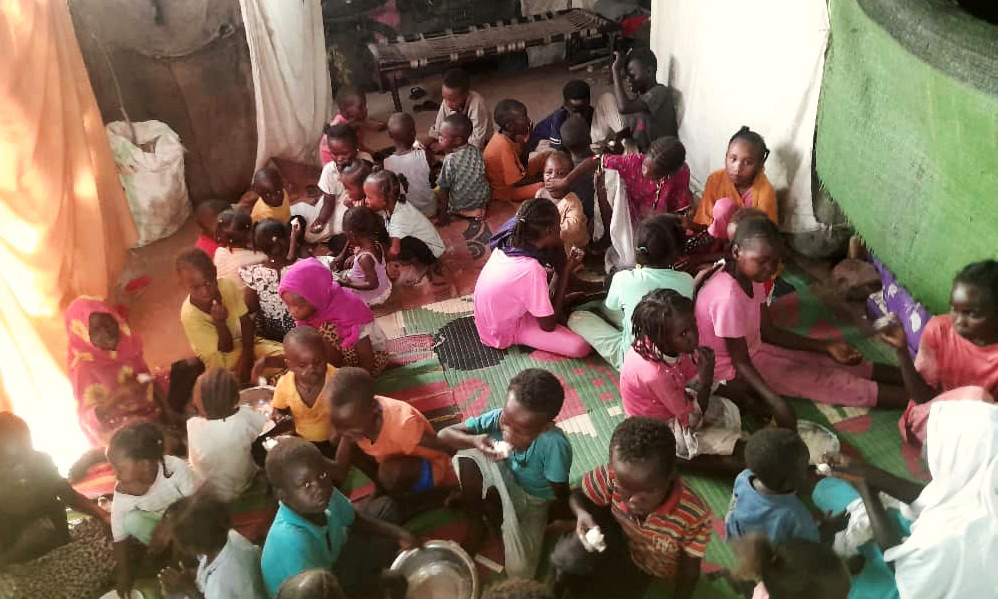
Children displaced with their families from El Fasher and other cities in Kordofan states, including children with special needs – Ali Mohamed Nour camp in Qoz Al Salam, south of Kosti, White Nile state (Photo: Radio Dabanga)
The humanitarian crisis in Sudan is worsening due to the ongoing war between the army and the Rapid Support Forces since April 2023, which has killed tens of thousands and displaced about 13 million people. With the fighting escalating beyond El Fasher and intensifying in North, West, and South Kordofan, tens of thousands of civilians continue to flee from El Fasher to Tawila and even Ad-Dabba, and from North Kordofan, where clashes are taking place today, to the White Nile states and the capital, Khartoum. This is happening amidst a food crisis, hunger, malnutrition, and a complete lack of healthcare throughout the country, where half the population is now in dire need of food and at risk of death from famine. Among those fleeing are children without their families, who have found themselves alone, accompanied by their groups, heading towards an unknown fate in one of the worst displacement crises the world is witnessing today.
The Rapid Support Forces’ capture of El Fasher after a year-and-a-half siege forced residents to flee in multiple directions across Sudan, with others escaping the country. Around 100,000 people reached Tawila, while tens of thousands arrived in Ad-Dabba in the Northern State, the capital Khartoum, White Nile State, and other states in eastern Sudan and Blue Nile.
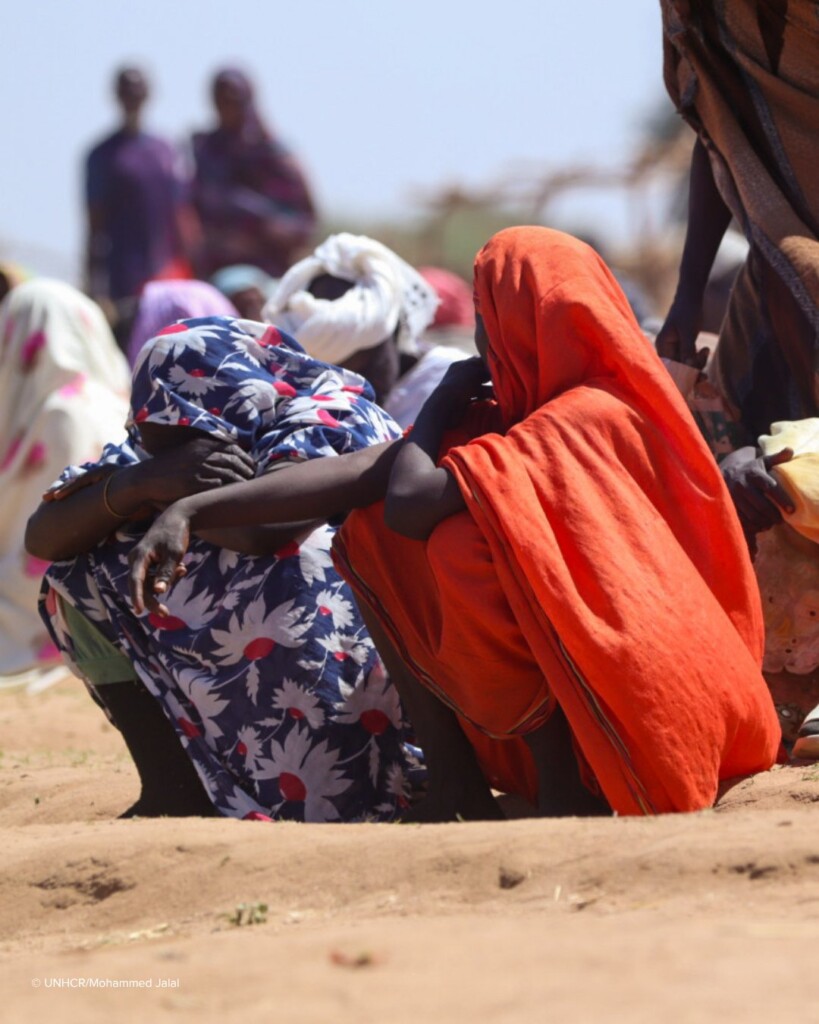
From El Fasher to Al Qouz camp, south of Kosti
Citizen Khadija told Radio Dabanga, while exhausted and stressed from what she had experienced and witnessed of the horrors of war in Darfur, that she had saved her six children from certain death every hour or every second.
“Khadija,” a pseudonym, took her six children and headed towards the White Nile State through several cities and states, without knowing any information or news about her husband or anyone who could guide her to him, amidst the chaos and escape from the ravages of war and the search for security and a lifeline.
But what happened to her was like a nightmare; she lost four of her six children, whom she had taken from El Fasher during her arduous journey to White Nile State. She doesn’t know their fate, just as she doesn’t know their father’s, leaving her in a state of despair, grief, and anguish.
Khadija arrived to join a large group of displaced families from the states of Darfur and Kordofan, but in a small tent inside the Ali Muhammad Nour camp in Qoz al-Salam, south of Kosti in the White Nile State.
From Darfur to Jebel Dair
Khadija complains with great displeasure about the harsh conditions faced by displaced families, noting that more than thirty families are crammed into a single tent that is not suitable for living and sustenance with the arrival of the harsh winter weather, in addition to the severe shortage of food, medicine and clothing.
She told Radio Dabanga that displaced people arriving from El Fasher are facing difficulties accessing basic services, noting that the situation in Jebel Dair is “unbearable” and that health facilities are suffering from a severe shortage of medicine and staff. Meanwhile, everyone is forced to stand for hours in long queues outside the hospital without receiving any treatment.
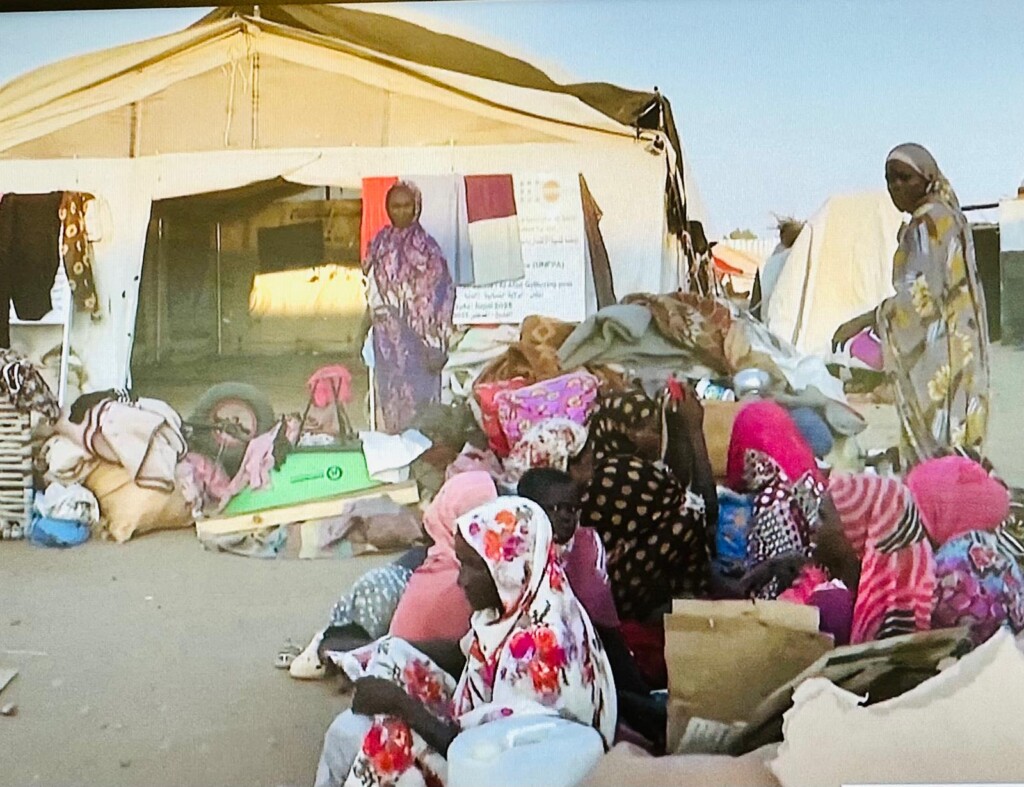
A series of trips:
As for citizen Sharifa Adam, she had taken a path to escape the horrors of war that took her through a series of forced journeys inside and outside Sudan, which were not without hardship and compounded suffering, most notably the security risks with the harsh living conditions and the lack of money to provide for living expenses and the burden of travel and moving from one place to another.
Sharifa left Nyala, the capital of South Darfur State, as she tells her story to Radio Dabanga, under the pressure of security conditions and military operations that included all parts of Darfur, and moved to Al-Daein city in East Darfur.
Before she could catch her breath and settle down, she left Sudan and arrived in the city of Wau in the Western Bahr el Ghazal State of South Sudan. She began moving between its cities, as the situation there in South Sudan is no better than in the north, the Republic of Sudan.
From Nyala to Aweil and vice versa, and even south of Kosti
During her long and arduous journey, Sharifa headed to Aweil province in Northern Bahr el Ghazal, where she stayed for a short period. She then traveled to Juba, the capital of South Sudan, but was unable to settle there due to events that took place in the city. She packed her bags, picked up her belongings, and returned to Sudan.
Sharifa returned to Sudan, but not to her home, as the war that caused her and others to flee was still ongoing, while security conditions and challenges continued to hinder the movement of travelers along the roads leading to Darfur.
She settled in the Ali Muhammad Nour camp in Qoz Al-Salam, south of Kosti in the White Nile State. She found her relatives who came from the states of Sennar and Khartoum, about 20 families, inside the camp, all living in a small space, but it expands with kindness and good company, and perhaps they will alleviate the burden and harshness of life for her.
Despite these tragedies and suffering that Sharifa Adam faced, the strength of her faith and determination to endure the harsh conditions of life enabled her to keep up with her life as the winter season was about to come and the urgent need for blankets to protect her from the cold weather.
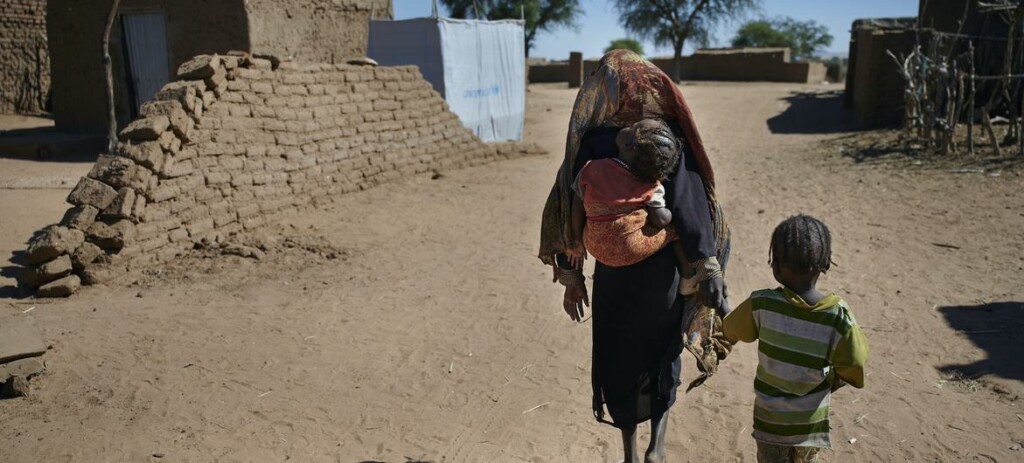
Her husband and son were killed in El Fasher
Naila Adam Idris Abbas told Radio Dabanga that she was living a simple life in the University District, first class, in El Fasher. She had all the comforts and decent living, and she lacked nothing, before the war turned all the details of her life upside down, and that luxury turned into misery and need, and the circumstances of the war forced her to flee from her city where she lived and grew up, to settle in a camp in the White Nile that is crowded with displaced people from Darfur and Kordofan.
Naila’s tragedy began with the killing of her husband, Jamal Babiker Hasaballah, and her son, who also died during the war. Her only daughter also died, but she left behind an infant who was ten days old at that time. This child is now seven months old.
Naila, overcoming the sadness and suffering she is experiencing, speaks with confidence. She lived through the tragedy of losing her husband, son, and daughter all at once, and was forced to leave her home because of the war that spread to all neighborhoods, cities, and camps. She embarked on a long journey from Darfur to the White Nile State, carrying in her arms her grandson who reminds her of everything.
Today, Naila lives in the Ali Muhammad Nour camp in Qoz Al-Salam, south of Kosti, in a fragile municipal shelter called a “rakuba”, whose roof does not protect her from the heat of the sun, nor does it prevent rain from falling on her, nor does it protect her from the cold weather with the beginning of the winter season these days.
Naila has become a mother for the second time, with her grandson who has become everything to her. She tries with all her remaining strength to be everything to him—his mother, his grandmother, and his only support in the face of a harsh and unforgiving life. Her suffering is endless, beginning with the difficulty of providing food amidst her difficult living conditions, and then securing formula milk, medicine, and clothing.

From El Fasher to Kosti: A dangerous journey
Another woman from El Fasher who was displaced in harsh conditions to the White Nile State, where she lives in the Ali Mohamed Nour camp in Qoz Al Salam, south of Kosti, her life is simple and fairly stable.
Speaking to Radio Dabanga, she says that she left one of the neighborhoods of El Fasher amidst the roar of bullets, the sounds of light and heavy bombs, and the shelling by planes and drones, in search of safe shelter. The journey to Kosti was not easy, but rather full of hardship and suffering, with high travel and transportation costs and harsh living conditions.
If this woman had tasted the bitterness and gloom of life by losing her family, clan, and home, then fate smiled upon her once again, compensating her with twin grandchildren born to her daughter, who is still receiving treatment in the hospital, and who accompanied her during the escape from El Fasher to Kosti.
This woman says that she is fine and today she and her daughter, along with between twenty and twenty-five people, are living in one small tent that may not be big enough for five people, but it has become a refuge for entire families, although they all complain of a lack of food, medicine and clothing.
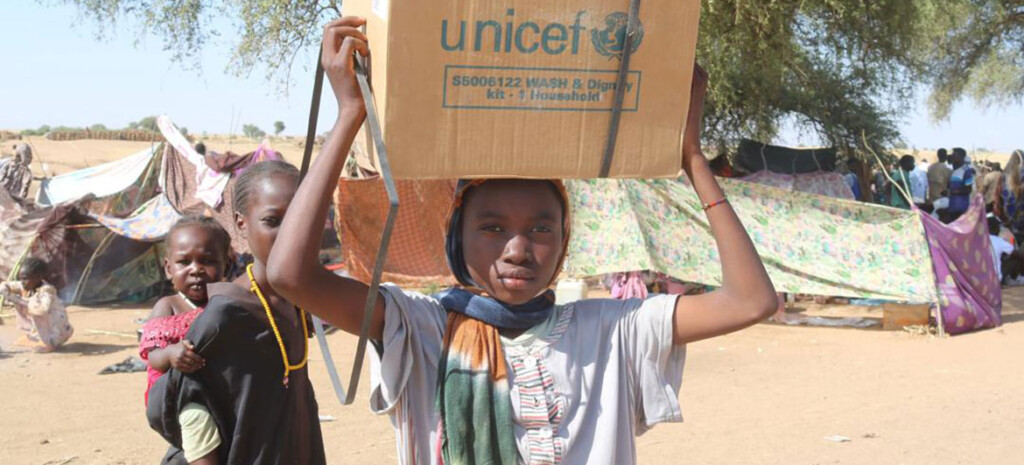







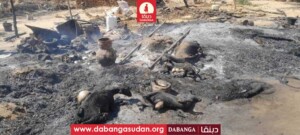
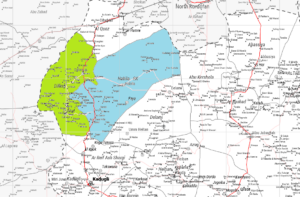


 and then
and then